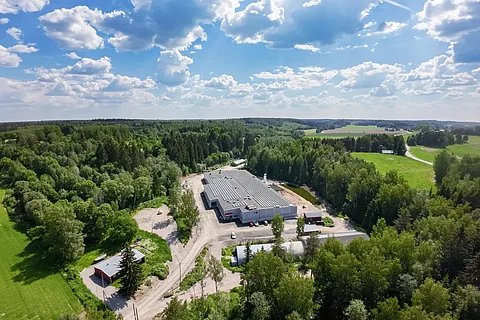

Finnforel operates two RAS facilities in Finland with a combined production capacity of 3,000 tons.
Finnforel
The broodstock and juvenile facility of the Finnish aquaculture firm Finnforel, located in Hollola, relies "significantly" on solar energy thanks to a 384 kWp solar power plant.
According to Finnforel, raising fish in indoor facilities requires a constant energy supply, which is why solar energy has become a cornerstone of its production process.
When there is no sunlight, the facility uses excess solar energy generated during the day and stored by an intelligent system. This increases energy self-sufficiency and supports Finland’s national power grid by helping to balance electricity load.
This solar energy and storage system has received support from the European Maritime, Fisheries and Aquaculture Fund, which advocates for the implementation of innovative and sustainable energy solutions that promote responsible fish farming.
"The broodstock and juveniles raised at the Hatsina facility are part of Finnforel's broader value chain, where renewable energy plays a central role," the statement reads.
Founded in 2015, Finnforel operates two RAS facilities in Finland with a combined production capacity of 3,000 tons. In mid-July, it sold its entire shareholding in Alltech Fennoaqua to existing co-owner Alltech. This move was to concentrate on its aquaculture business.
Furthermore, the company signed in 2024 an agreement with ADQ, an Abu Dhabi-based investment and holding company, to develop a state-of-the-art land-based fish farming facility close to Abu Dhabi.
